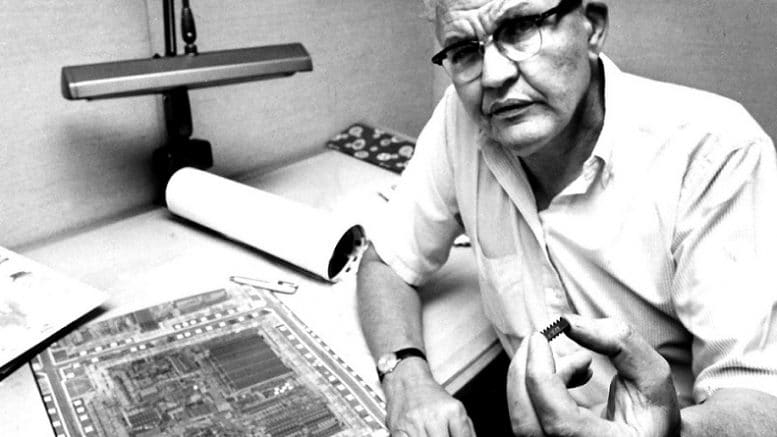A large portion of today’s population has never lived in a world where computers did not exist. Those over 40 years old, can still remember a time where the name Apple and Microsoft meant absolutely nothing. But nowadays, almost every aspect of life has to do with this modern technology. Let’s go back in time and discover how that came to be.
From Room Size to Pocket Size
Those alive in the days when the first computer was built are getting rarer every year. That’s because we have to go back all the way to the 1940’s to find the inventor of the computers. It did not have much to do with the machines we have in our home, offices and certainly not with the smartphone we carry around today, but it still worked on the principle of binary additions. And if we bring that back to the context of the time, this was quite revolutionary.
It’s a certain George Stibitz who had the idea of what was then called the “Model K”, which is considered to be the first digital computer in history. It was simply a relay based calculator using binary addition. But maybe the biggest difference with today’s machines can be found in size comparison. Model K was the size of a room and it had the weight of a double-decker London red buses.
If this thing was still working today, ecologists would quickly pull the plug on it, as it ate considerable amount of energy, just to do simple calculations. You could easily recognize it thanks to its millions electronic switches buzzing, known as vacuum tubes. To think that the electronic industry actually comes from such a pre-historical object, from the point of view we are currently sitting on, is hard to imagine. But it is the way the first computer was born.
Let’s Make Things Smaller!
The 70s came and suddenly the idea of making things smaller took hold. With the arrival of the transistors to replace the vacuum tubes, the technology became more reliable and it could be counted on to last longer than the previous one. That is when the race really started. The goal: To create something that could be trusted, would cost a lot less and would be massively reduced in size, all the way to minuscule; especially in comparison to its ancestor.
Like most things in life, the computer chips came to life through the resolution of a problem. The year was 1958 when Jack Kilby was hired at Texas Instrument. His job was to find a solution to the problem called “the tyranny of numbers”. At that point in time, it became extremely difficult to fuse together so many components. The machines were becoming more complex, which was adding to the difficulty. But Jack was a specialist of ceramic-based circuit boards and transistorized hearing aids and it did not take him long to think of a solution.
Thinking Outside the Box
When you have an issue with number and size, you need to think outside the box, which is what Jack did. He thought: How can we go really small without having all those wires to melt together. Instead of pursuing the melting of many, he created a smaller element which included the various elements that needed to be joined together. And this is how the first silicon chip was born.
This is also why he got to take home the Nobel Prize back in 2000. He did not only solve the company’s problem, he invented something that was extremely small, consumed a lot less power and was not costly to produce. The first integrated circuit was born and although many people would make good use of the chips later on, nobody else can claim its creation. Did Jack Kilby thought to himself: I have just changed the world forever? We’ll assume that it did not even cross his mind. But more than 50 years later, all humans know how much of a difference this man made with his invention.
A Revolution
Take out the silicon chips and there are so many things from our lives that would be missing today. GPS, phones, TVs and radios would look quite differently than how they do today. We can wonder how we would be working, since computers and tablets are basically great working tools because of the size of their chips and their capacity to contain so much in so little.
There is no doubt that something would have replaced it. Life hates the void and evolution only goes forward. Yet, we might still be a decade behind or more if it wasn’t for Jack Kilby. It only shows that if you place a problem in front of a man, he or someone else will always end-up finding a solution. This is the way the world turns and grows. So if you think you have a good idea, go for it! You never know, the world might be a completely different place because of you in 50 years…

Be the first to comment on "Ever Wondered Who Invented the Silicon Chip?"